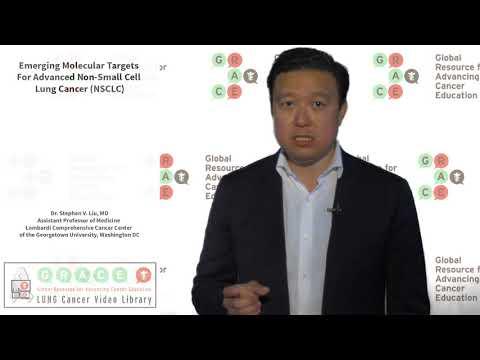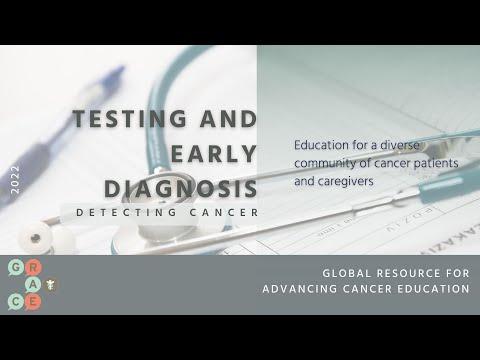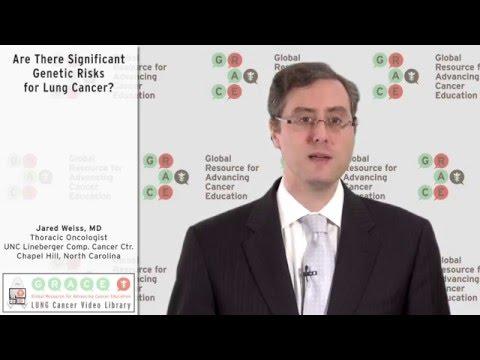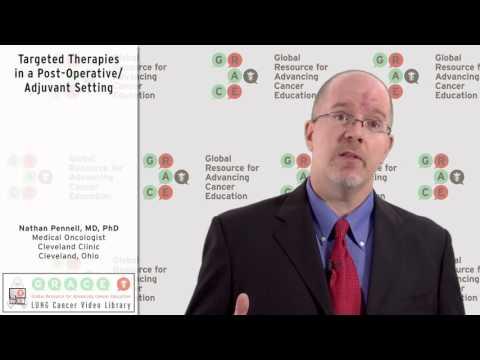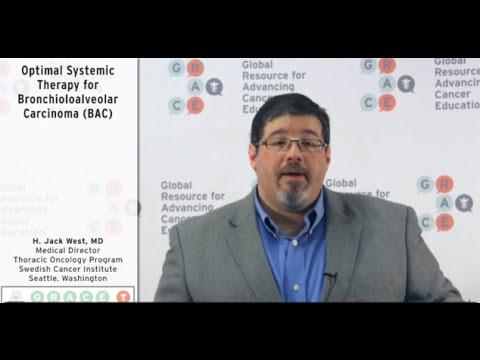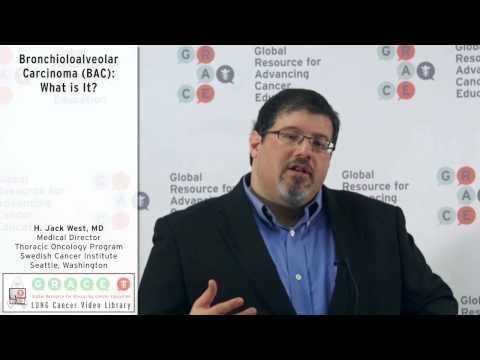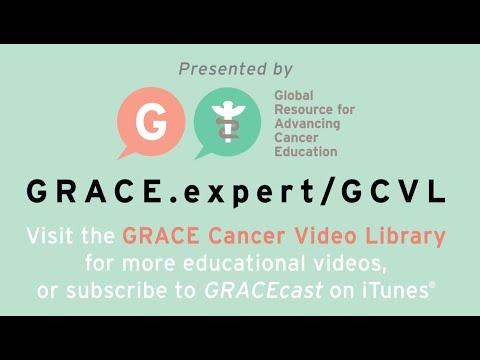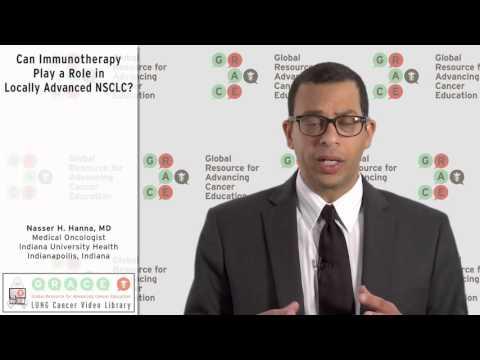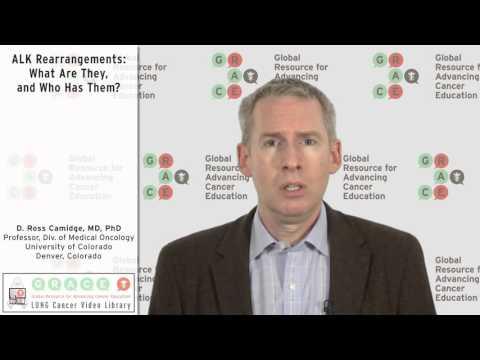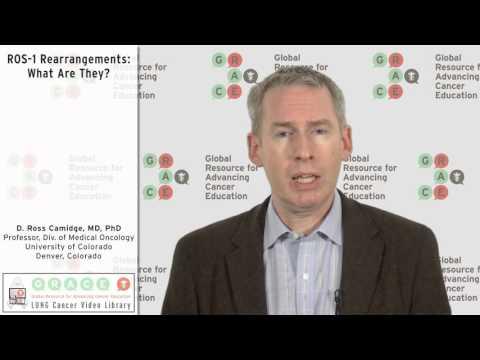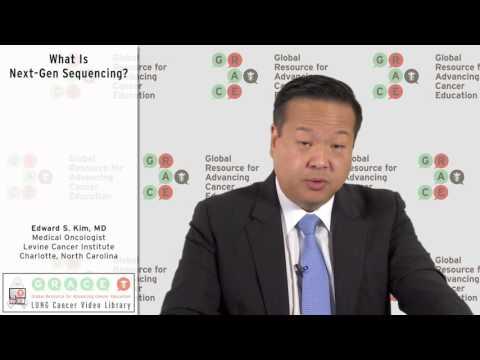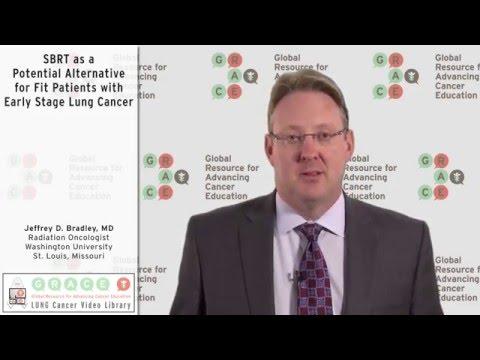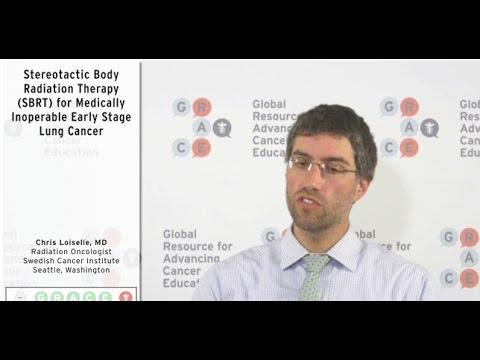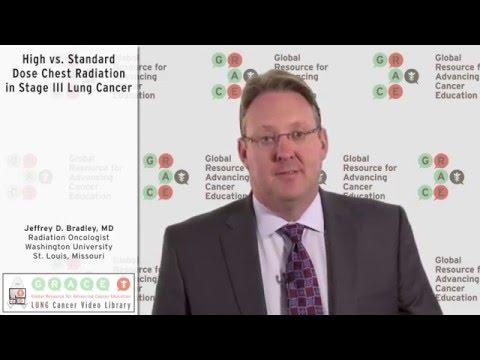Stephen Liu, MD provides updates to our Lung Cancer Video Library. In this recent video, Dr. Liu discusses Emerging Molecular Targets For Advanced Non-Small Cell Lung Cancer (NSCLC)
Video Library
Search the Video Library
Video Language
Filter by Cancer Type:
Displaying Results 1 - 15 of 66
For this 2022 Program: Testing and Early Diagnosis, Drs. Devika Das, Medical Oncologist, Hematologist, UAB Medicine, Clinical Assistant Professor, University of Alabama Birmingham; Dr. Rana McKay, Medical Oncologist, Associate Professor of Medicine, UC San Diego; and Dr. Medhavi Gupta, Hematologist
Dr. Jared Weiss, UNC Lineberger Comprehensive Cancer Center, discusses the genetic risk (or lack thereof) for lung cancer.
Please Note: New Treatments Have Emerged Since this Original Post
Dr. Nathan Pennell, Cleveland Clinic, reviews the available trial evidence for the use of targeted therapies in the post-operative/adjuvant setting.
Bronchioloalveolar carcinoma (BAC) is an unusual subtype of lung cancer; medical oncologist Dr. Jack West reviews the evidence on the best systemic therapy to treat advanced, multifocal BAC.
Bronchioloalveolar carcinoma (BAC), also known as adenocarcinoma in situ, is an unusual subtype of lung cancer with its own appearance under a microscope and on imaging. Dr. Jack West introduces some of the basics of the unique features of BAC. Download PDF Transcript Transcript One of the unusual
Unfortunately, there is as much misinformation as good information about the unusual subtype of lung cancer known as bronchioloalveolar carcinoma (BAC) or adenocarcinoma in situ. Dr. Jack West reviews the top 5 myths. Download PDF Transcript Transcript One of the unusual subtypes of lung cancer is
Dr. Nasser Hanna, Indiana University Health, discusses the possible role of immunotherapy in locally advanced NSCLC.
Dr. David Harpole, Duke University Medical Center, describes how he assists patients with the surgical decision-making process.
Dr. Ross Camidge, University of Colorado, describes ALK rearrangements and the characteristics of patients who most often have them.
Dr. Ross Camidge, University of Colorado, describes ROS-1 rearrangements and compares them to ALK rearrangements in frequency of occurrence and response to treatment.
Dr. Ed Kim from the Levine Cancer Institute in Charlotte, NC summarizes the mechanism of next generation sequencing (NGS), how it can potentially be used, and its limitations in clinical practice today.
Dr. Jeffrey Bradley, Radiation Oncologist at Washington University in St. Louis, provides evidence for the use of stereotactic body radiation therapy as an alternative to surgery for operable early stage lung cancer.
Dr. Jeffrey Bradley, Radiation Oncologist at Washington University in St. Louis, describes the history and current use of stereotactic radiation therapy for inoperable lung lesions.Dr. Jeffrey Bradley, Radiation Oncologist at Washington University in St. Louis, describes the history and current use
Dr. Jeffrey Bradley, Radiation Oncologist at Washington University in St. Louis, provides trial evidence showing that patients may not benefit from high dose chest radiation therapy vs. standard dose therapy.

